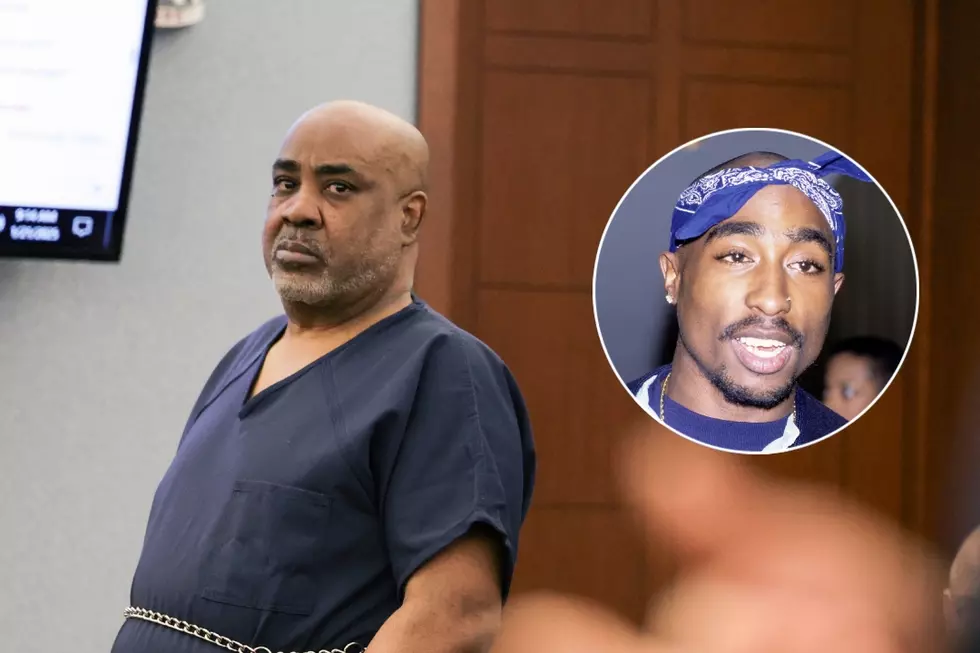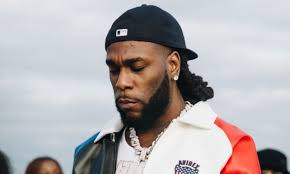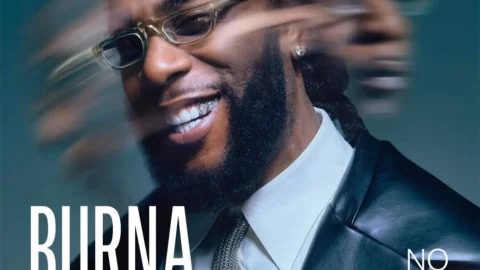The long-awaited trial of Duane “Keffe D” Davis, the only person ever charged in connection with the murder of legendary rapper Tupac Shakur, has been postponed yet again, pushing the proceedings almost a year further into the future.
Nearly three decades after Shakur’s death, the trial, which was originally scheduled to begin in March 2025, has now been moved to February 2026. The decision was made during a brief court hearing in Las Vegas on Tuesday, where Clark County District Court Judge Carli Kierny acknowledged that new developments presented by Davis’ legal team made it impossible to proceed as planned.
Davis, 61, was arrested in September 2023 and has remained in jail ever since, facing charges of first-degree murder in connection to Tupac’s fatal 1996 shooting. He has pleaded not guilty, and his legal team has continuously sought to delay the trial, citing the need for more time to prepare a robust defense.
His trial had already been rescheduled twice—from June to November 2024 and then to March 2025—before this latest postponement. Judge Kierny noted that there were still several critical aspects of the case that required further work to ensure Davis had adequate legal representation.
“It looks like there are quite a few things that are left to be done to get this case prepared so that Mr. Davis can have effective assistance of counsel,” Judge Kierny stated in court. She emphasized that while delaying the trial for nearly a year was not ideal, it was necessary to ensure all parties were adequately prepared for what is expected to be a highly scrutinized and complex legal battle.
Davis, a former Los Angeles gang leader, agreed to the postponement when asked by the judge if he was comfortable with waiting until 2026 for his day in court. His legal team has maintained that given the length of time that has passed since the 1996 shooting, they require significant time to properly investigate and build their case.
The defense has repeatedly argued that the delay is crucial in order to ensure a fair trial, given the historical nature of the case and the difficulty of gathering reliable evidence and witnesses nearly 30 years later.
Last week, Davis’ attorneys filed a motion to officially request the trial’s postponement. In the filing, they claimed that new evidence had surfaced that could support their client’s innocence. According to the defense team, a private investigator recently identified witnesses who could testify that Davis was not even at the scene of the shooting when Shakur was gunned down in Las Vegas.
If verified, this testimony could be crucial to Davis’ case, potentially undermining the prosecution’s argument that he played a direct role in the rapper’s murder.
In addition to challenging the location of Davis at the time of the shooting, the defense is also questioning the official cause of Tupac Shakur’s death. Davis’ attorneys have stated that they are consulting medical and forensic experts to examine whether alternative explanations for Shakur’s passing exist.
They have pointed to witness statements indicating that the rapper was initially in stable condition after the shooting and suggested that there may be discrepancies in the medical reports surrounding his eventual death.
The legal battle over Tupac’s murder has drawn global attention, with Davis’ arrest in 2023 reigniting public interest in one of hip-hop’s most infamous unsolved cases. Tupac, who was 25 years old at the time of his death, was shot multiple times on September 7, 1996, in Las Vegas and died six days later in the hospital.
Over the years, numerous theories have circulated regarding who was responsible for the attack, but no one had been officially charged until Davis’ indictment nearly three decades later.
Davis, who has publicly spoken about his connection to the case in interviews and his memoir, has long been suspected of having inside knowledge of the events that led to Tupac’s murder. Prosecutors allege that he played a central role in orchestrating the attack, acting as the shot-caller in a gang-related retaliation.
His own past statements have been cited as key evidence against him, with prosecutors arguing that he effectively implicated himself in Tupac’s killing.
With the trial now pushed back to 2026, legal experts and fans alike will have to wait even longer for potential closure in a case that has remained one of the most talked-about mysteries in music history. While the delay buys Davis’ legal team more time to build their defense, it also prolongs the long quest for justice in a case that continues to captivate the world.

On the night of September 7, 1996, Tupac Shakur was shot in a drive-by shooting while in Las Vegas. The rapper was sitting in the passenger seat of a black BMW, driven by Death Row Records founder Marion “Suge” Knight, when a white Cadillac pulled up beside them at a red light.
Without warning, gunmen inside the vehicle opened fire, striking Shakur multiple times. The sudden attack left chaos in its wake, as bystanders watched in shock while Knight attempted to escape the deadly ambush.
Both Shakur and Knight were rushed to the hospital following the shooting. While Knight sustained only minor injuries, Shakur’s wounds were far more severe. He fought for his life for six days, undergoing multiple surgeries in a desperate attempt to save him.
However, on September 13, 1996, the 25-year-old rapper succumbed to his injuries, marking the end of a life that had profoundly shaped the hip-hop industry. His death sent shockwaves throughout the music world and ignited decades of speculation, controversy, and conspiracy theories surrounding the identity of his killer.
Although Duane “Keffe D” Davis is not accused of being the shooter, prosecutors allege that he was the mastermind behind the attack. Under Nevada law, an individual can be charged with murder even if they did not pull the trigger, as long as they played a significant role in orchestrating the crime.
According to authorities, Davis, a reputed former gang leader, coordinated the hit on Shakur as part of an ongoing feud between rival groups. The state argues that his involvement in the planning and execution of the shooting makes him legally responsible for the rapper’s murder.
Davis himself has made numerous public statements about the incident, adding to the controversy surrounding the case. In interviews and a 2019 memoir, he claimed that he was in the Cadillac that carried out the fatal drive-by shooting.
However, in a sharp reversal, Davis’ legal team now insists that these statements were merely for “entertainment purposes and to make money.” His attorneys argue that his past confessions were exaggerated or fabricated, raising questions about the reliability of his previous claims and the prosecution’s case against him.
One of Davis’ most significant admissions came in his book, where he implicated his nephew, Orlando “Baby Lane” Anderson, as one of two men in the backseat of the Cadillac. Anderson, a known member of the South Side Compton Crips, had been involved in a physical altercation with Shakur earlier that night inside the MGM Grand casino.
This fight, caught on security cameras, was widely speculated to have been the catalyst for the shooting that followed. While Anderson always denied involvement in the killing, he was later shot and killed in an unrelated gang dispute in 1998.
Davis’ legal team is now arguing that he should never have been charged, citing an immunity deal he claims to have struck with federal and local prosecutors years ago. His attorney, Carl Arnold, contends that Davis had cooperated with law enforcement in past investigations and was promised protection from prosecution.
If such an agreement existed, it could significantly weaken the case against him. However, prosecutors argue that any immunity Davis may have received was limited in scope and does not shield him from facing charges in Tupac Shakur’s murder.
Despite Davis’ claims, authorities remain confident in their case. They insist that they have substantial evidence tying him to the crime and that his past statements, whether made for financial gain or not, provide crucial insights into his involvement.
The decision to finally charge Davis, decades after the murder, suggests that law enforcement believes they have gathered enough proof to hold him accountable. The long-standing mystery surrounding Shakur’s death may finally be on its way to resolution.
Meanwhile, Suge Knight, who survived the attack that killed Shakur, is currently serving a lengthy prison sentence for an unrelated crime. In 2015, he was convicted of voluntary manslaughter after running over a man in a hit-and-run incident in Los Angeles.
Although once one of the most powerful figures in the music industry, Knight’s downfall has been marked by a series of legal troubles and violent encounters, further adding to the dark history surrounding Death Row Records.
Shakur, whose life was cut short at the peak of his career, remains one of the most influential and celebrated figures in hip-hop history. Known for hit songs such as Dear Mama, California Love, Keep Ya Head Up, and Changes, his impact on the genre continues to resonate with fans worldwide.
The mystery of his murder has persisted for nearly 30 years, making it one of the most infamous unsolved cases in music history. Whether Davis’ trial will finally provide long-awaited answers remains to be seen, but the search for justice in Tupac Shakur’s death continues.








